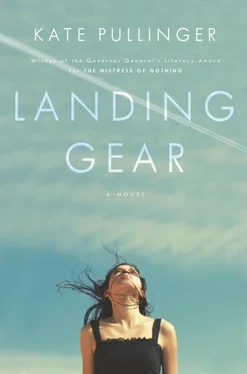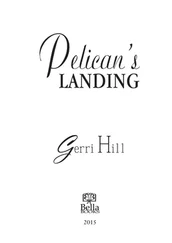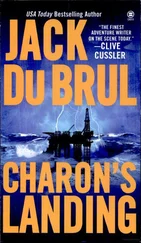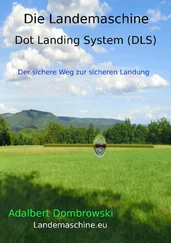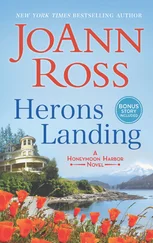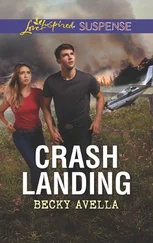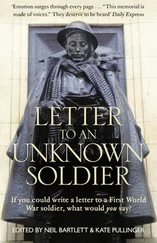“What do you think?”
Young black woman, smartly dressed: “Oh, it’s amazing, isn’t it? The sky—it’s like we’ve arrived in the future or something.”
“What about you, sir?”
Older Asian man, in a suit: “My fifteen-year-old daughter is in the south of France on a language exchange. How on earth am I supposed to get her home? It’s not like she can hire a car and drive to Calais.”
Polish man, thirty-something: “I’m stuck here! I came over to visit my brother. He works at Heathrow, so he now has some extra time to see me, which is good. But London is so expensive. If I have to stay much longer, I’ll have to get a job, like all the other Polish people!”
“And you?”
Older white woman: “I’m loving it. My husband is stranded in Norway, but he’s with friends, so he’s okay. I love the quiet. It’s so peaceful. It would be brilliant if Richmond was like this all the time.”
The interviews were going well; it had been a good idea to come to this part of town, far west, close to Heathrow. Everyone on the high street was in a curiously good mood, despite their stories of children, partners and colleagues stranded. It was as though the air had cleared finally after a long deluge.
Pensioner, with a walking frame: “I never realized before that the sky is so full of noise. I know that we see and hear and feel the planes most days, but I’m amazed at how accustomed I’d become. I’d be happy if the planes never returned.” Barney videoed the interviews at the same time as recording the sound. After they’d amassed a fair amount of material, Harriet suggested they head over to Richmond Park to record the lack of noise.
Barney laughed. “That’ll make good radio.”
“No, come on,” Harriet said, “you’ll see. It’s a good idea.”
Because the Easter school holidays were still on, the road traffic was very light. In fact, the whole of London felt depopulated. In the park they walked until they found a copse for Harriet to stand in. The sun was shining and the daffodils were out. The trees had that tentative, early-spring look, caught between leaf and blossom. A large flock of bright green West London parakeets settled in one of the oaks. Barney turned his camera on, and what they expected to be silence was, of course, full of sound—birds, the light breeze in the leaves and grass, in the distance a dog barking, a car passing. Harriet found it hard not to smile. She spread her arms and looked up into the sky, which was completely, solidly blue.
“No jet streams,” she said. “Not a single jet stream.”
Back in the studio, they cut together the piece, managing to persuade Steve to give them five minutes instead of the two he’d said he wanted. They edited a video version as well, to post on the station website.
“This will make you a star, Harriet,” Barney said.
Harriet snorted. “Middle-Aged Woman Happy in Park.”
The piece went out on the five o’clock news. Harriet handled the links and read the news, as always. The presenter, Josh, in his avuncular local radio voice said, “And now, for a piece on the effect of the ash cloud beneath the flight path into Heathrow, over to our very own newsreader, Harriet Smith.” Harriet and Barney stood up and applauded each other as the package went live.
When it first sank in that his father was stranded across the Atlantic, Jack was worried. On the news, they talked about the ash cloud dispersing and blowing away. But the volcano kept erupting, spewing clouds of smoke and ice into the atmosphere: it had been erupting continuously for days, and the cloud continued to spread and thicken. There was talk of a second volcano beginning to rumble: it turned out that Iceland was heaving with active volcanoes. Online there were rumours about test planes flying into the cloud and being forced to make emergency landings, the millions of tiny shards of ice in the cloud attacking the engines, stripping the paint off the fuselage. Jack’s father was stuck and Jack had no idea when he might see him again.
Despite all this, or maybe because of it, Jack felt that his moment had arrived. He wasn’t sure why. Probably a hormone-induced fantasy—one among many. Not only was his father stranded across the Atlantic Ocean but his mother was at work for longer hours than normal, from before Jack got up to after he’d retreated to his room at night. He was in his preferred state, unsupervised, on holiday, free to hang out with whoever he wanted, free to go wherever he felt like. School was due to start again tomorrow, and that made this final weekend all the sweeter. Jack wanted to live his life. That’s one of the bad things about being a kid: you aren’t allowed to live your life. Well, today, he would.
Jack’s mother kept leaving money on the kitchen counter for him to buy takeaway, but he resisted and stuck to eating white bread with chocolate spread, with the occasional orange thrown in to keep him healthy. Instead of buying food, he used the money to buy draw. He gave the money to Ruby, so she could give it to her brother, who would then give the stuff to Ruby, so she could give it to Jack. Overnight, he had become popular. People wanted to hang out with him. Ruby wanted to hang out with him.
Jack was crap at rolling spliffs so Ruby did it, or sometimes Frank, though he was worse at it but better at pretending he knew what he was doing. At Dukes, one of the big mums, shepherding a herd of toddlers, chased Jack and his friends away from the children’s playground where they’d been hanging around the swings smoking, so they flopped down at the other end of the green by the river. It was sunny—the whole of April had been sunny. Jack couldn’t remember ever experiencing such a sunny month. And the sky, well, while they tried to pretend smoking weed had no novelty, was nothing out of the ordinary, they allowed themselves to continue to marvel at the clean plane-less sky.
Jack felt wavy straight away. Before, when he’d had the odd puff here or there off one of Ruby’s tiny, tightly rolled spliffs, he didn’t feel much at all—his feet would get a bit heavy, and he’d get the beginnings of a headache. It wasn’t like with beer where a single can made him feel hilarious. This was an altogether stranger feeling.
They lay in a row on the grass holding hands—Frank, Ruby, Abdul, Dore and Jack—like those paper doll cutouts they used to make in primary school. Somebody’s dog, off its leash, came running past and sniffed them all over. They didn’t mind. The sky was unbelievably blue.
“We need a party, man,” said Frank, “we need to go to a party.”
“Nobody has parties on Sunday afternoon, Frank,” said Abdul. “Except your parents.”
They all laughed, except they were too lethargic to laugh out loud, so they laughed on the inside. Jack could feel Ruby giggling beside him. Frank’s parents were famous for their Sunday afternoon barbecues where Frank’s large extended family would gather and get drunk. Invitations were coveted by Frank’s friends because of the availability of booze once the adults had had too much to notice.
“No party today,” said Frank. “My parents have taken a vow of chastity—no, that’s not right, what is it?—abstinence. Uncle Ned had an epileptic fit and the doctor told him he’s an alcoholic. So everyone’s having a go at not drinking.”
“Wow,” said Ruby. “How long will that last?”
“Till the doctor apologizes or something.”
“I don’t know that I’d want to go to one of those barbecues if they aren’t drinking,” said Abdul. “It would be weird.”
“I know. My mum poured my dad’s whiskey down the sink. He stood there nodding and sighing. I thought they were going to cry.”
Читать дальше
